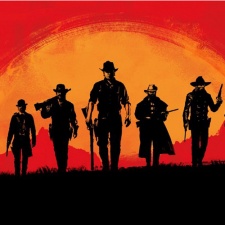Developers at Rockstar have spoken out after restrictions on social media use were relaxed last week.
Back then, we suggested the move was likely a shrewd PR move. But in the week since, anonymous developers have reached out to journalists to paint a more comprehensive image of life at the notoriously-secretive company.
Kotaku has published exhaustive report on working conditions across Rockstar's studios, where he spoke to 34 current and 43 former employees at the company, as well as head of publishing Jennifer Kolbe.
All sources, except for Kolbe, spoke anonymously. The degrees to which individuals find working at Rockstar skew wildly both positively and negatively, but the expectation of long hours is one felt across the board.
“I’m not writing because I want to harm the company or the game,” said one employee.
“I’m proud of both and I stand by them. I think the incredible amount of time and effort put into the game will show and I can’t wait for people to see it next week.
“I’m writing because I think this is a unique opportunity to raise our voices against the insanity of crunch, and that Rockstar really could change for the better as a result. If that happens, maybe other studios will follow suit.”
The report also mentioned that while crunch could often be rewarded by handsome bonus payouts, those were highly dependent on the success of the game. Max Payne 3, in which development was described as a “death march” by one source, failed to perform to expectations. As such, bonuses were “significantly lower than expected".
It also arose that Rockstar does not credit developers who leave their jobs before the launch of a game. The developer recently put up a website thanking every individual who contributed to the eight-year development of Red Dead Redemption 2 - but it remains to be seen how many of those are left out of the in-game credits proper.
“That has been a consistent policy because we have always felt that we want the team to get to the finish line,” said Kolbe.
“And so a very long time ago, we decided that if you didn’t actually finish the game, then you wouldn’t be in the credits.”
The feature closes by raising the question of whether art of this scale is worth the pain, referencing CD Projekt Red CEO Marcin Iwiński description of crunch as a “necessary evil".
For me, that’s a moot question. Working conditions are an issue across the games industry - and while Rockstar provides an immediately visible example, we see it time and again from developers big and small.
Across the board, it’s time for developers to look at more fundamental changes around how we create games.
Full disclosure: I have multiple friends who work at Rockstar, one of whom is my significant other.













